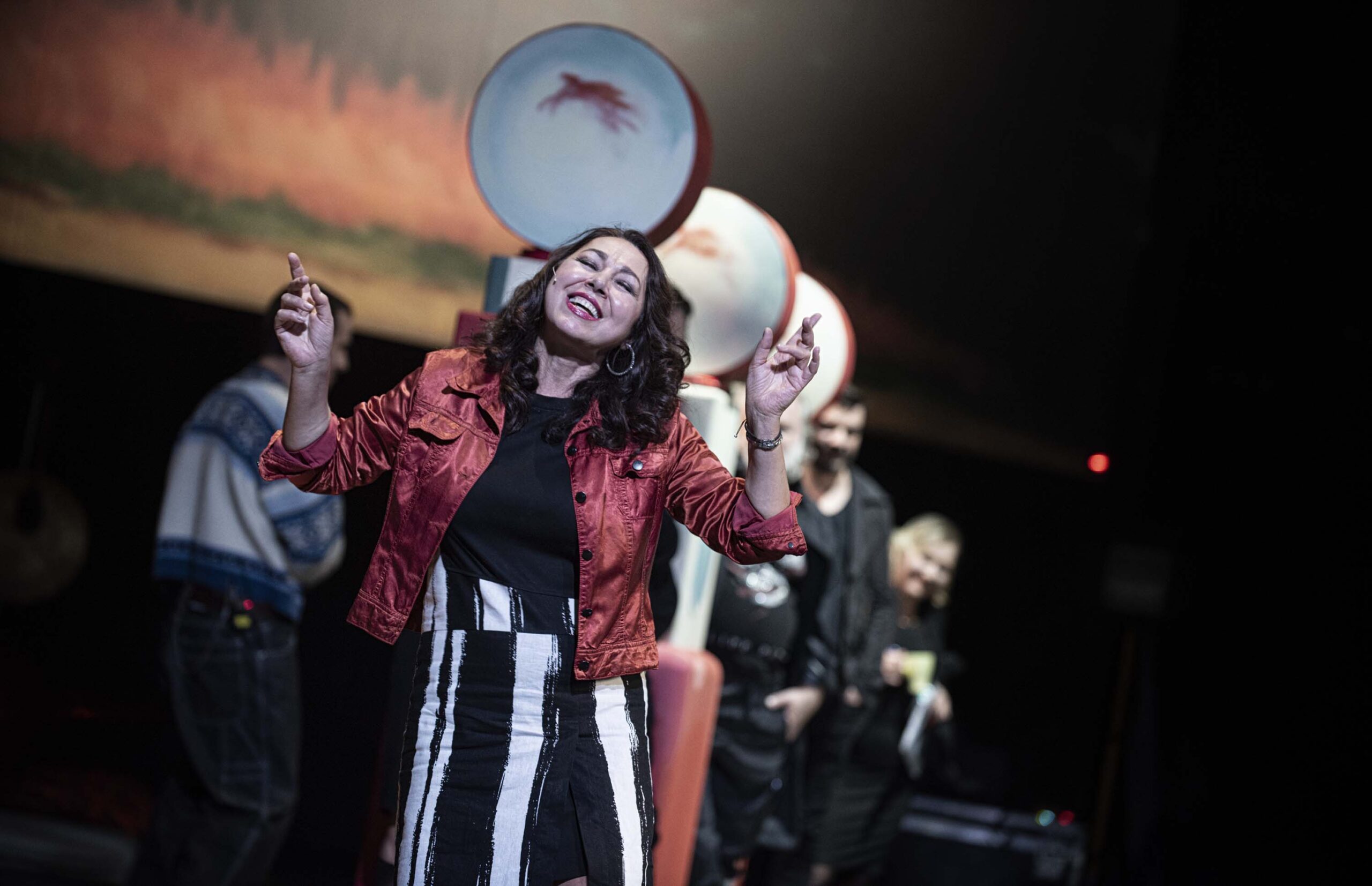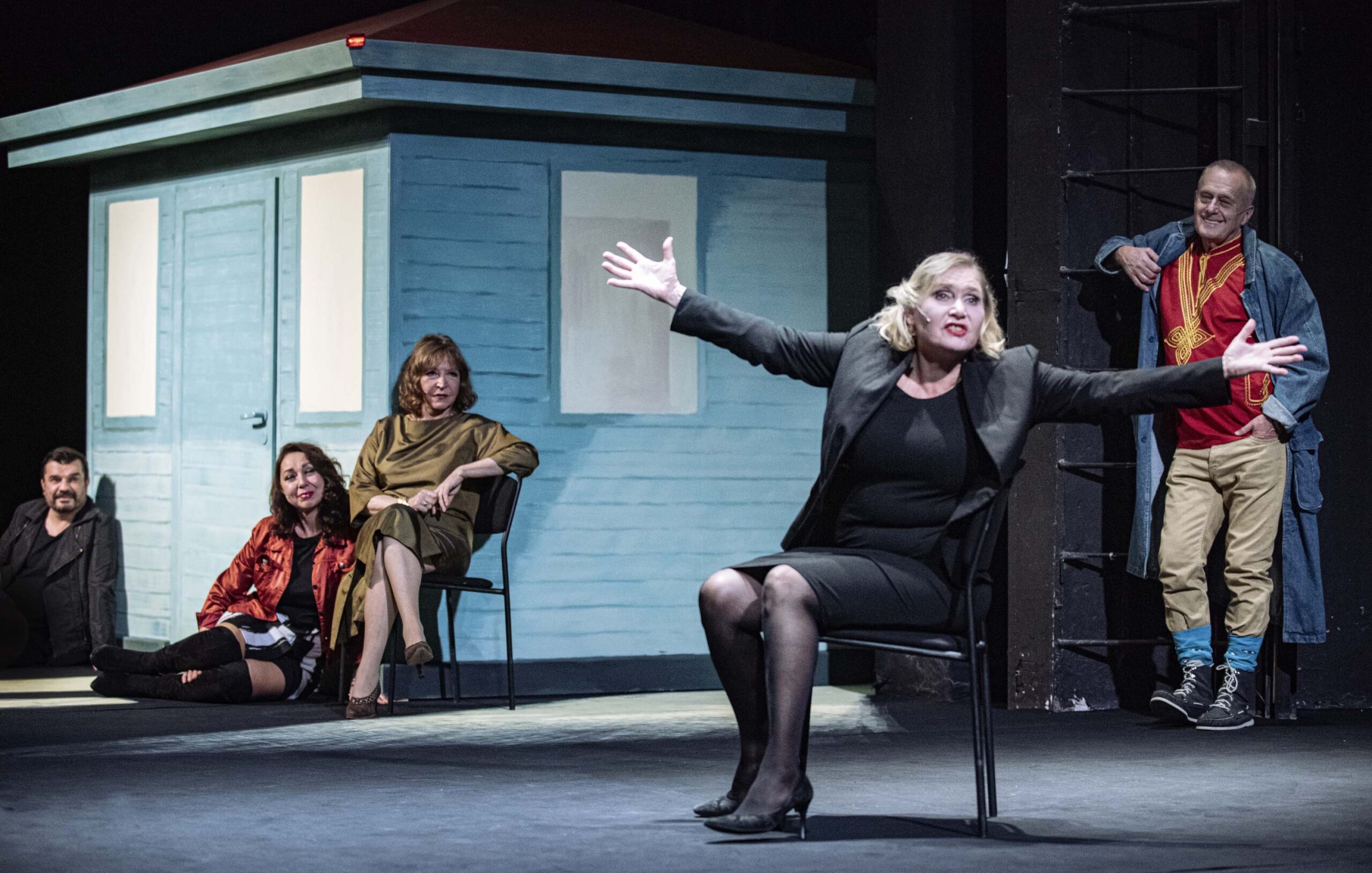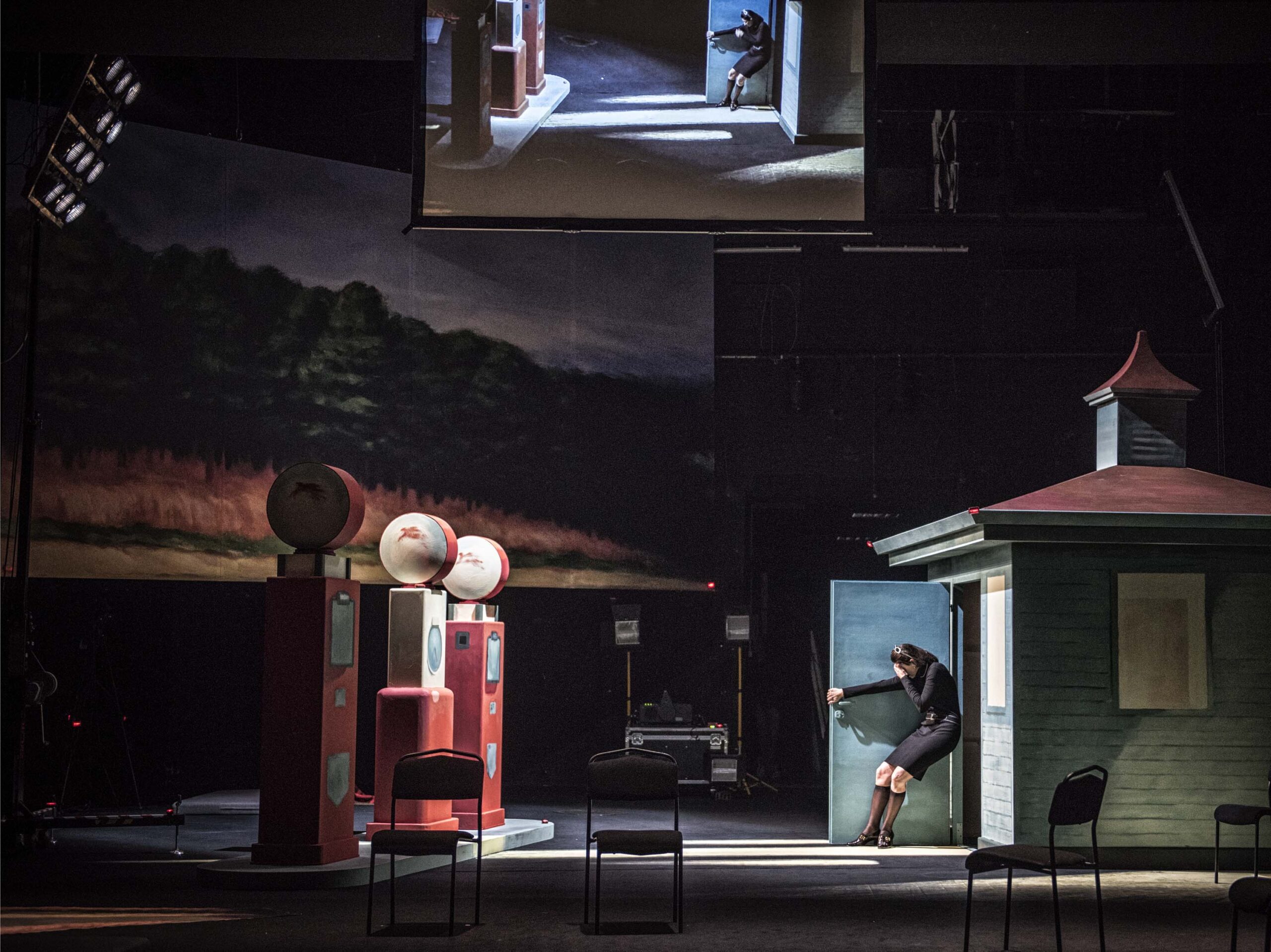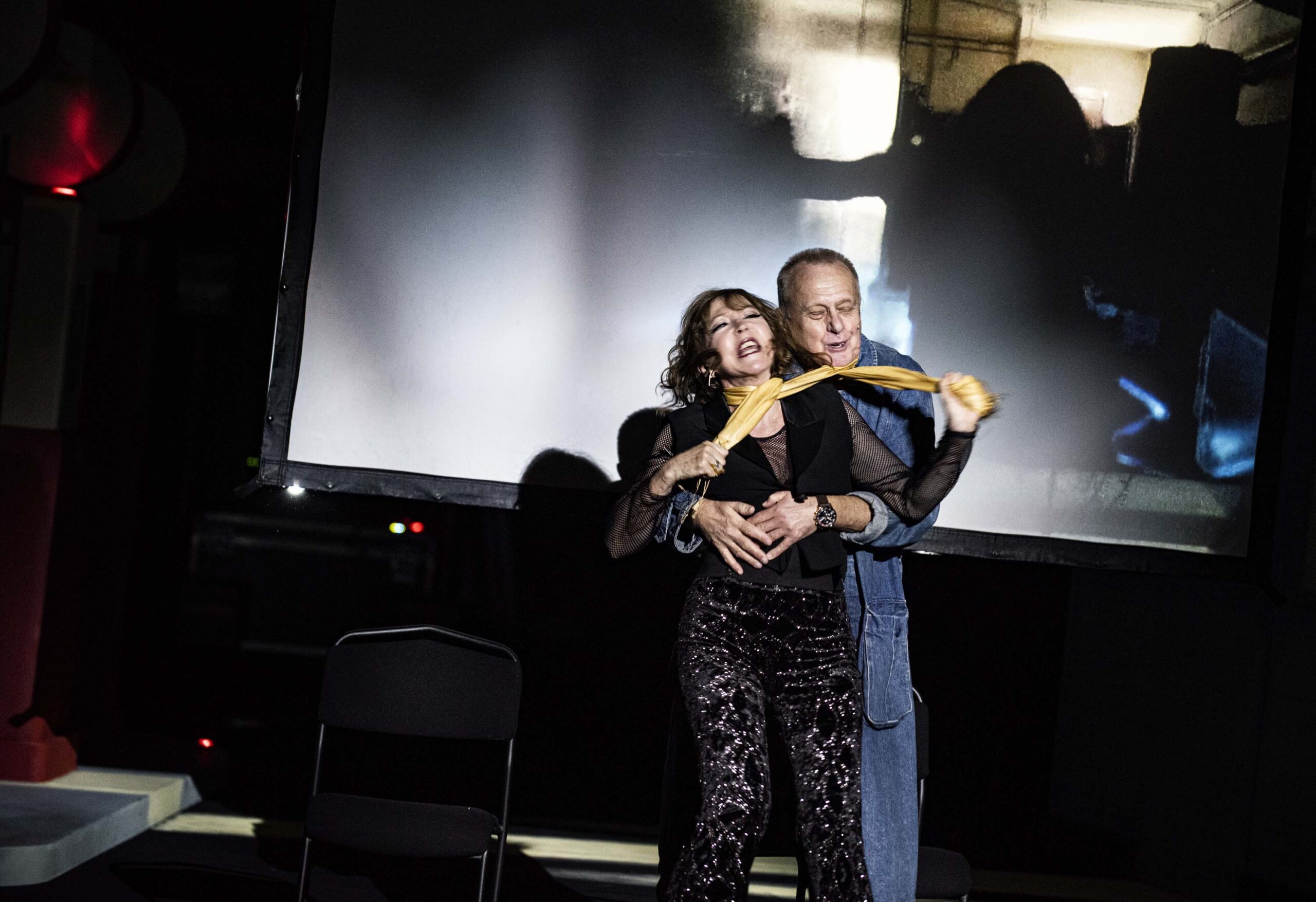Actors
Actors
Monika Niemczyk
Graduate of the Acting Faculty of the Ludwik Solski State Theatre School in Krakow (1970)
“Then there’s Moniką Niemczyk—an independent and restless actor, stubbornly in search of meaning. She is dauntless, in the sense that she always wants to go against the grain. Monika Niemczyk never sought easy popularity or ingratiating artistic choices. She is a bit like the titular Miss Julia Strindberg from the legendary TV Theatre performance (…). Proud and undefined—fascinating.” (Łukasz Maciejewski, Polska Gazeta Krakowska)
She returned to the Stary Theatre after years in Michał Borczuch’s self-referential and intimate play “Provincial Actors: The Doppelganger,” where “as an actor (Monika Niemczyk) catches her stalker (Zygmunt Józefczak), who for some time has been trying to turn into her doppelganger. And maybe even to become her, soaking up her existence? The question who might be the titular doppelganger remains far from simple to answer. For this is not just about actors’ nightmares and frustrations (…). The key thing is sensitivity to oneself, one’s own capabilities, limitations, and to another person” (Olga Katafiasz, teatralny.pl).
Monika Niemczyk performed at the Stary Theatre for the first time as the airheaded artist Ethala in the charming and entertaining “Conversations During the Felling of a Forest” by Jerzy Markuszewski. Her next role on the national stage was Rimma in “The Person from Nowhere,” the directorial debut of Edward Linde-Lubaszenko, and Lucy from “The Three-Penny Opera” directed by Ryszard Major, which delighted audiences and critics alike: “Niemczyk has a light touch and grace, she manages to make contact with Sadecki, their combination gives the performance its warmth and intimacy” (Magdalena Łazarewicz, Literatura). She also contributed to the monumental “With the Passing of Years, with the Passing of Days…” by Andrzej Wajda and Anna Polony, where she was Misia Chomińska, who professes her love to an impoverished law student. Jerzy Jarocki also gave her a role in “A Dream of the Sinless,” and in the chorus of Canterbury women in Elliot’s “Murder in the Cathedral.”
Working with Krystian Lupa on “The Nameless Work” was of enormous importance to Niemczyk: “Striving to show all the protagonists’ internal and fateful entanglements in the manner of Witkiewicz, Lupa decided to apply an anti-psychological method of depicting the characters and the mutual ties. (…) A similar dialogue is held by Monika Niemczyk, who shines as Róża, with Cynga, in whose construction Jan Nowicki saw Witkiewicz’s principle of building a role in a role, and with Plazmonik, who flounders between the erotic and art” (Krzysztof Miklaszewski, Dziennik Polski). In “City of Dreams,” Lupa assigned her the role of Ewa: “Monika Niemczyk, making a brilliant duo with Hudziak, is the Protagonist’s wife, lost and infinitely tormented by the reality of the State of Dreams” (Piotr Jędrzejczak, Teatr). This play was staged once more at Niemczyk’s prompting, this time at TR Warszawa.




